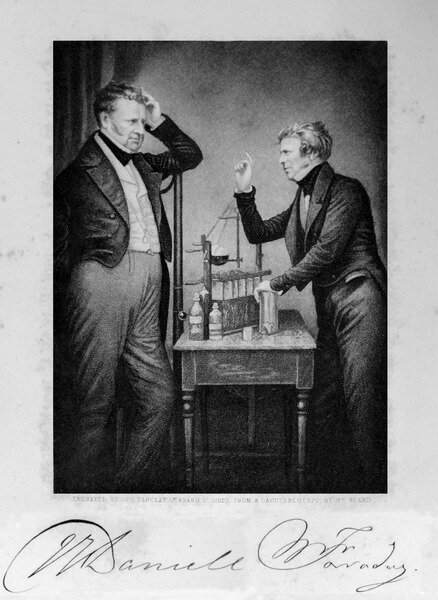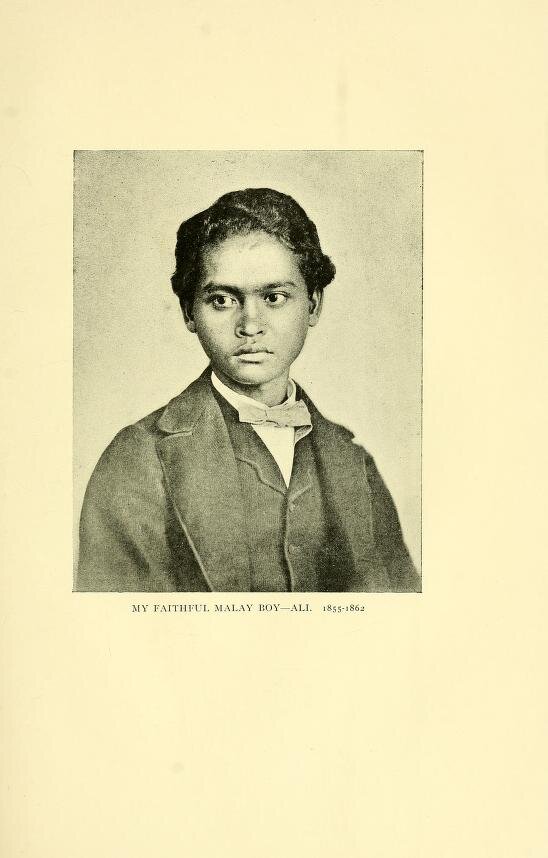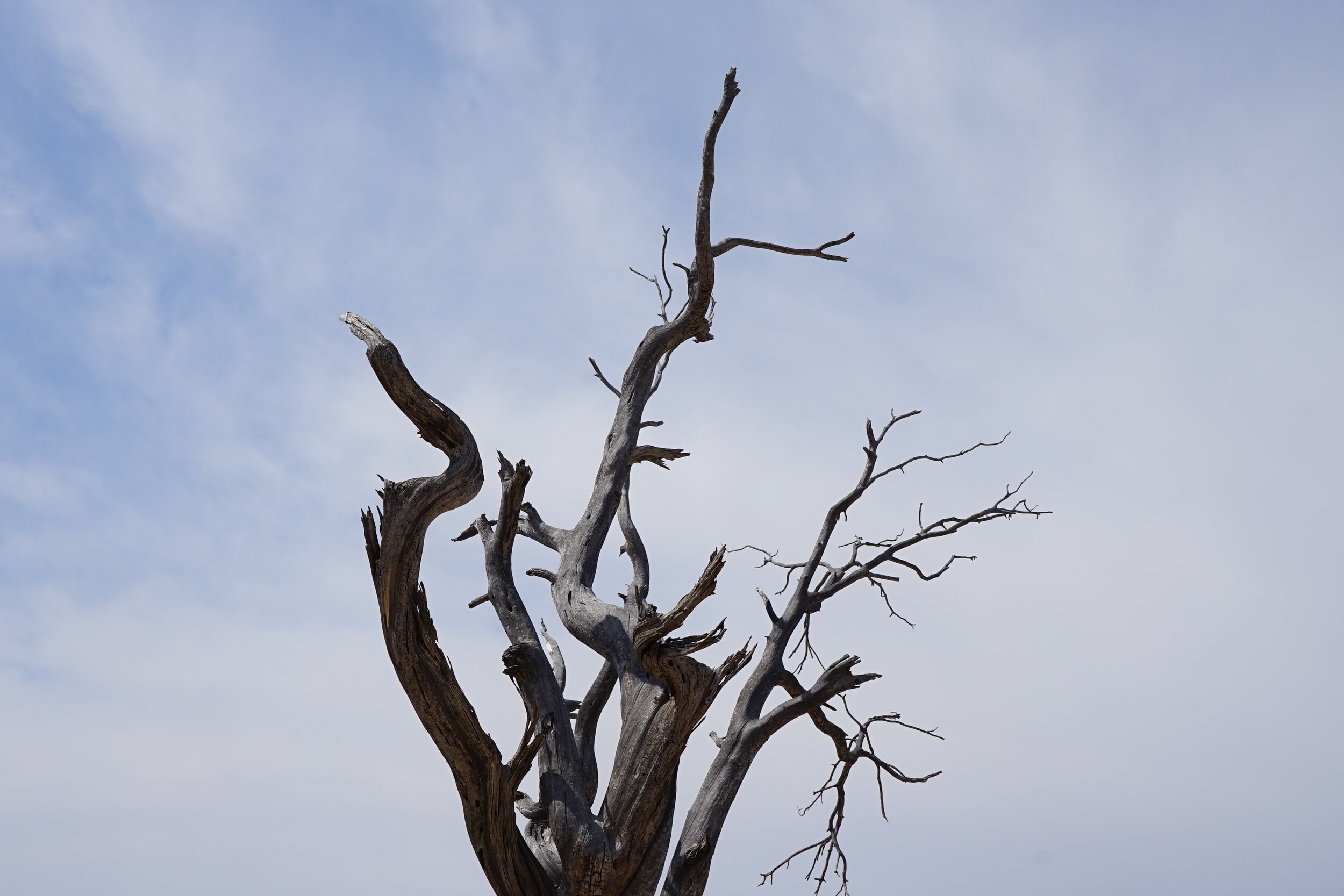
On the Art and Science of Making Buildings Sound Natural | Aeon Essays
“Patte’s design strategies for improving theatre acoustics failed. His main suggestion – shaping the theatre as a perfect ellipse, so sound would bounce off the curved walls in an orderly way – proved totally inadequate. When a massive theatre built on this premise opened in Berlin in 1802, it was widely criticised for a distracting echo.”

200 Years Ago, Faraday Invented the Electric Motor | IEEE Spectrum
““Faraday knew the power of quick publication, and in less than a month he wrote an article, "On Some New Electromagnetic Motions and the Theory of Electromagnetism," which was published in the next issue of the Quarterly Journal of Science, Literature, and the Arts. Unfortunately, Faraday did not appreciate the necessity of fully acknowledging others' contributions to the discovery.”

A Biography of Pixel | Aeon Essays
“Early in his career, Kotelnikov showed how to represent a picture with what we now call pixels. His beautiful and astonishing sampling theorem, published in 1933, is the foundation of the modern picture world.”

On the Link Between Great Thinking and Obsessive Walking: Literary Hub
“There is in fact a sort of harmony discoverable between the capabilities of the landscape within a circle of ten miles' radius, or the limits of an afternoon walk, and the threescore years and ten of human life. It will never become quite familiar to you.”

Flora, Fauna and ... Funga? | Undark Magazine
“Government, people, institutions still think of biodiversity in terms of ‘flora and fauna,’” says David Minter, president of the European Mycological Association. “And that, of course, absolutely excludes fungi — it’s so pervasive.”

The Long Road to Maxwell's Equations - IEEE Spectrum
“The mathematical and conceptual underpinnings of Maxwell’s theory were so complicated and counterintuitive that his theory was largely neglected after it was first introduced.
It took nearly 25 years for a small group of physicists, themselves obsessed with the mysteries of electricity and magnetism, to put Maxwell’s theory on solid footing.”

Physics of Birds and Bees | Cosmos Magazine
It is thinkable that the investigation of the behaviour of migratory birds and carrier pigeons may some day lead to the understanding of some physical process which is not yet known.
Sincerely yours,
Albert Einstein.

Physicists' Early Dreams of Nuclear Powered Spacefligth | Physics Central
“Despite the soundness of the science, Project Orion was morally difficult for many to get behind. “The idea isn’t crazy; the idea that we might do it is crazy,” physicist and author Arthur C. Clarke said of Project Orion.”

‘I am 'Ali Wallace’, the Malay Assistant of Alfred Russel Wallace: an Excerpt | The Conversation
“He [Ali] accompanied me through all my travels, sometimes alone, but more frequently with several others, and was then very useful in teaching them their duties, as he soon became well acquainted with my wants and habits.”

When Science Breaks Bad | Arstechnica
Q. How would you go on an expedition to tropics in XVIII century?
A. “If you were an English naturalist in 1771 and you wanted to collect specimens from the tropics, you had to go on a slave ship; those were the only ships that went.

Future Calculations | Distillations | Science History Institute
Q. When did scientists learn about the role of carbon dioxide in climate?
A. A long time ago but for many years they have doubts or wouldn’t worry. The warmer the better, isn’t it ?
Q. Have you ever been in a place with 115 degrees Fahrenheit ( 46.1C)? Now tell me how it is better …

Lucian’s Trips to the Moon | The Public Domain Review
Q. Why do we dream about the impossible?
A. Because nothing is impossible.
Q. How do you that “nothing is impossible” is true?

On Humming Birds | As reported in 1693
“Who can but admire to see the whole Body, and all the parts of a Bird folded up in an Egg, little bigger than a Pepper-Corn ? They feed by thrusting their Bill and Tongue into the blossoms of Trees, and so suck the sweet Juice of Honey from them ; and when he sucks he sits not, but bears up his Body with a hovering Motion of his Wings : But for the relation that he is a curious singing Bird, I think it untrue.”

Wasaburo Ooishi and the Jet Stream | Cosmos Magazine
“The jet stream is arguably the greatest weather system on Earth,” says Tim Woollings, a climate scientist in the Oxford University Department of Physics. “If you were only given one piece of information from which to infer something about the weather, then across much of the Earth’s surface you’d want it to be about the jet stream.”

Revisiting the 'She Doctor' Panic of 1869 | Undark Magazine
“Preston remained unfazed. After another 13 years of persistence the hospital finally gave in again. Now, Ann and her students would test the waters a second time with a new crop of students. And the male students did their best to trouble that water.”

Helen M. Free and Alfred Free | Science History Institute
“Helen and Alfred went beyond testing for glucose and developed other strips for testing levels of key indicators of disease. Once they achieved success with a number of different test strips, they turned their attention to combining more than one test on a single strip.”

A Blight on Soviet Science | Damn Interesting
“When they were ready to cross the river, the men unslung their rifles and began shooting into the water, continuing for hundreds of rounds. The river was turbulent with the thrashing mass of crocodiles before turning a deep crimson, their bodies floating belly up. Pushing the crocodiles aside with the butts of their rifles, the men waded across the river towards the highlands to complete the aim of the expedition—to collect an assortment of seeds to bring back to their extensive seed repository in the Soviet Union.”

The End Of Time | Nautilus Magazine
“This April, as he sat in the kitchen of his 360-year-old house in Oxfordshire, England, Barbour, 84, was still discussing the concept of time with the excitement of a 26-year-old. In December, 2020, he published The Janus Point, his first book since The End of Time. It’s named after the two-headed Roman god who simultaneously looks forward and backward.”

Ernest Rutherford's Ambitions | Physics Today
“In the early 20th century, the most important physics laboratories in the world were concentrated in Europe; by comparison, North American institutions were scrappy upstarts at best and irrelevant backwaters at worst. Rutherford felt isolated and frustrated by his distance from the centers of the physics world.”

Visualizing History : The Polish System - The Public Domain Review
“The Polish System fixed this: no longer did a student have to create a picture of the world out of words — now global history could unfurl on a grid before their eager eyes.”